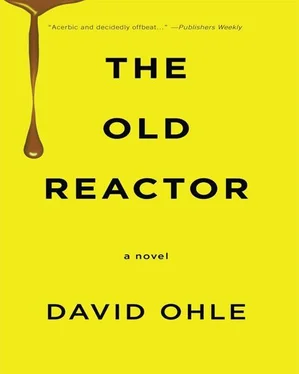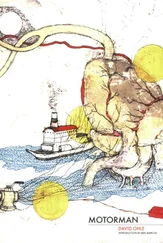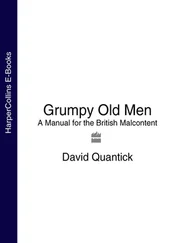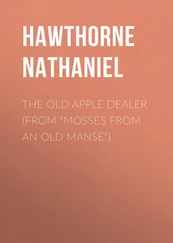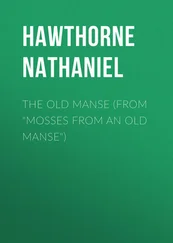David Ohle - The Old Reactor
Здесь есть возможность читать онлайн «David Ohle - The Old Reactor» весь текст электронной книги совершенно бесплатно (целиком полную версию без сокращений). В некоторых случаях можно слушать аудио, скачать через торрент в формате fb2 и присутствует краткое содержание. Год выпуска: 2014, Издательство: Dzanc Books, Жанр: Современная проза, на английском языке. Описание произведения, (предисловие) а так же отзывы посетителей доступны на портале библиотеки ЛибКат.
- Название:The Old Reactor
- Автор:
- Издательство:Dzanc Books
- Жанр:
- Год:2014
- ISBN:нет данных
- Рейтинг книги:4 / 5. Голосов: 1
-
Избранное:Добавить в избранное
- Отзывы:
-
Ваша оценка:
- 80
- 1
- 2
- 3
- 4
- 5
The Old Reactor: краткое содержание, описание и аннотация
Предлагаем к чтению аннотацию, описание, краткое содержание или предисловие (зависит от того, что написал сам автор книги «The Old Reactor»). Если вы не нашли необходимую информацию о книге — напишите в комментариях, мы постараемся отыскать её.
The Old Reactor — читать онлайн бесплатно полную книгу (весь текст) целиком
Ниже представлен текст книги, разбитый по страницам. Система сохранения места последней прочитанной страницы, позволяет с удобством читать онлайн бесплатно книгу «The Old Reactor», без необходимости каждый раз заново искать на чём Вы остановились. Поставьте закладку, и сможете в любой момент перейти на страницу, на которой закончили чтение.
Интервал:
Закладка:
“So I’ve heard. I’ll watch out. Is there a bakery anywhere near? I love bear claws.”
“There’s one over in the Quarter. If you need anything, the Quarter’s where you’ll find it. There’s nothing around here but Saposcat’s, privies, and rooms. There’s a streetcar that goes there.”
“Thank you for the information. Good night.”
“If you have any trouble, please don’t wake me.”
“I won’t.”
The room was furnished with a bare cot; a plastic table; a wooden chair; and a small, splintery dresser. When Moldenke opened its top drawer out of general curiosity he found an aged copy of Burke’s Treatise on the Sublime and the Beautiful .
There was a north-facing casement window that only opened halfway and couldn’t close completely. But it let in just enough light that he could read himself to sleep. He had no interest in Burke’s Treatise or anything else, but studying the impenetrable sentences and unfamiliar words first made his vision blur. He lay in the cot and held the book out to catch the best light. Doing so, he managed to read a few strings of words, leading him to understand that pain and pleasure were not opposite ends of a continuum, the presence of pain was not the absence of pleasure, and that indifference was the state of mind when neither was present.
Not long after he fell asleep and slept all day and most of the night.
It was revealed today in Altobello that Scientist Zanzetti locked himself into a shielded cubicle inside a small reactor of his own design. Standing with his head and shoulders visible in the tiny viewing cubicle, he could be seen staring distantly and playing with his fingers. He rarely spoke and then only to ask for barrel honey with which to smooth and groom the long silky black hairs of his chin beard. Every day he was furnished with a lead-lined frock and turban. Observers claim they could detect a cosmic and benign sadness in his misty, deep black eyes. Some thought he was intercepting messages intended for jellyhead sacks.
For breakfast the following day, Moldenke walked to a Saposcat’s Deli close by, ate a bowl of scrapple, and drank a cup of strong tea, crowded as it was with a mix of free people and peaceable jellies, After that, he wandered around the west side, taking in the sights, such as they were. He learned quickly that bricks often fell from the tallest downtown buildings whenever a streetcar went by. He had to alternate looking up for falling bricks and looking down for the occasional sinkhole in the sidewalk. A broken ankle or a fractured skull would be disastrous. The hospitals closed only days after Altobello was liberated.
When he came to Liberty Park, a former urban green space that had apparently evolved into something of a jelly-head encampment and cemetery, Moldenke saw their underfed children roaming aimlessly, one of them chasing a rat. Another drank rain water from a puddle.
He walked generally and slowly past the grave of a jellyhead, who by custom were buried vertically and upside down, feet protruding from the earth. There was just a pile of toe bones left, a few toenails, and a gnarled shoe.
He picked up his pace until he was some distance from the Park, not far from the Quarter, which he was curious to see. He caught the Arden car at the next stop, showed his card, and took a seat. A few jellyheads across the aisle engaged in lively conversation. They seemed the harmless type, not likely to be carrying deformant. One of them leaned across the aisle and asked Moldenke if he would mind settling a dispute. “Glad to,” he said.
“Tell us, in his famous Treatise , which concept does Burke say is the more compelling, that of the sublime or that of the beautiful?”
“I’m sorry to say, I haven’t read much of it yet.”
“You must. It’s all the rage. Everyone’s reading it.”
“Thank you. I’ll make a point of finishing it.”
There was a crossing gate at the entrance to the Quarter. The car stopped and someone looking very official got aboard with a billy bat, slapping it rhythmically against his thigh. He walked slowly up and down the aisle, looking at passengers’ faces, sometimes stopping to sniff the air around their seating area or to reach down and feel the passenger’s heartbeat, perhaps to see if they might guilty of some infringement and feeling anxious. It was unclear to Moldenke what more the official was trying to determine, but whatever it was, Moldenke only received a brief glance with no hint of suspicion. When the inspection was over, the car rolled on to the Quarter. Knowing nothing of the place, he got off at the first stop, chose a direction at random, and began walking.
Photographers’ bulbs flashed as two hundred jellyheads stood in the mud of City Park Wednesday night awaiting a miracle. They watched a nine-year-old jellyhead, Joseph Vitolo, pray at an improvised altar banked with pissweed and dandelion flowers, statuettes and dozens of guttering candles.
It was the sixteenth night the boy had seen a vision of the future in the rain clouds. He later told the press that in the vision he had foreseen a miraculous eddy opening beneath him, swallowing him entirely and admitting him into the ranks of the great saints and healers. The crowd saw no miracle yet, but several invalids and one or two with gel-sack rot claimed their condition had suddenly improved.
At seven p.m. the boy rode through the waiting crowd on the shoulders of a neighbor in a hard rain. Paralytics, others with crutches and bandages followed, trying to be near the visionary boy. The parade of drenched jellyheads went along in a semi-circle until the boy grew dizzy and almost fainted.
“Look! Look!” a rumor spread through the lot. “He is not getting wet. The rain doesn’t touch him. It is a miracle. This is the one who has come to save us.”
But those closest to the boy said he was as wet as anyone.
The concrete streets of the Quarter were cracked and sprouting weeds. Moldenke slowed down as he passed the Church of the Lark and its steeples. The odor of incense and beeswax drifted out into the street. Feeling a rumble in his bowels, an uncomfortable fullness, he went into the Church to get out of the sun and rest a few minutes, hoping to forestall an attack from the gut.
There were votive candles burning warmly in red glass cups. A Sister of Comfort swept the aisles. Another busied herself draping statuary with purple chintz. A third arranged paper lilies on the altarpiece. Moldenke breathed as deeply as he could; the scent of frankincense had a calming effect on him. He sat in a back pew to wait for the spasm in his belly to pass, but it only grew worse. He lay down and closed his eyes, falling into a dreamlike half-sleep where he lost control and soiled himself.
A light shake of the shoulder and a woman’s voice brought him out of his reverie. “Sir, you’ll find a public bath just down the street. Wash up there and have them boil those trousers.”
“I am so sorry, Sister. It’s something I can’t avoid. I have an angry bowel, and I ate scrapple for breakfast.”
“These things happen. Do hurry, though. We know the aide at the bath. He’s a very nice young freeborn man.”
Moldenke found Public House #6 only a block away. After showing his card and explaining the situation he was led by the bath aide to a small lavatory just off the vestibule and told to stand near the sink, remove his boots, socks, uniform trousers, and underdrawers. He did this while the aide watched. When he was finished the aide said, “Bathe in pool number one, then two, then three. These clothes will be clean and dry when you’re done.”
There were a few other bathers floating languidly in pool one, in water the color of tea, soaping themselves then diving under for a rinse. The water in pool two was cleaner, and three was spring fed and clear.
Читать дальшеИнтервал:
Закладка:
Похожие книги на «The Old Reactor»
Представляем Вашему вниманию похожие книги на «The Old Reactor» списком для выбора. Мы отобрали схожую по названию и смыслу литературу в надежде предоставить читателям больше вариантов отыскать новые, интересные, ещё непрочитанные произведения.
Обсуждение, отзывы о книге «The Old Reactor» и просто собственные мнения читателей. Оставьте ваши комментарии, напишите, что Вы думаете о произведении, его смысле или главных героях. Укажите что конкретно понравилось, а что нет, и почему Вы так считаете.
